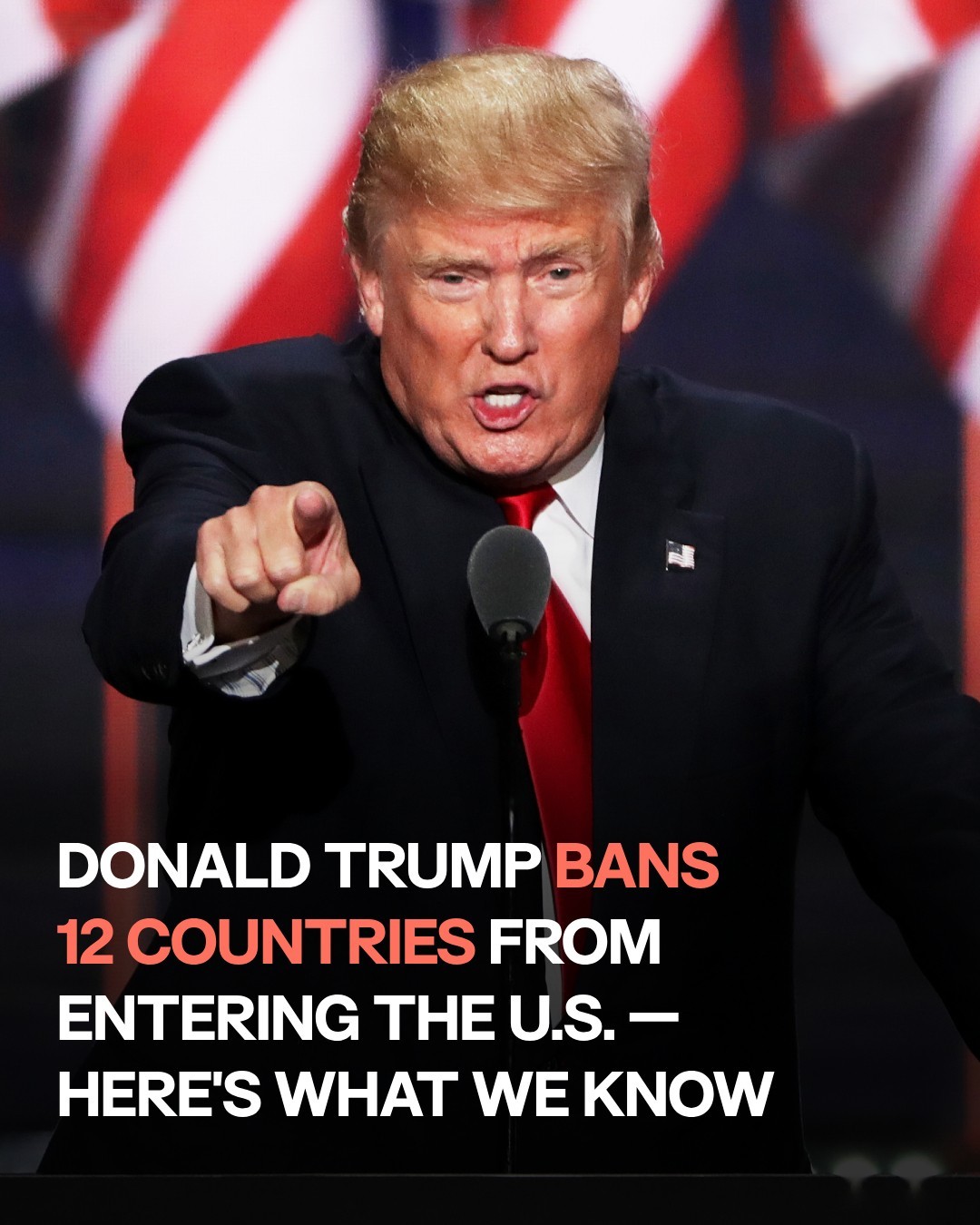Donald Trump Signs Proclamation to Ban Travel from 12 Countries, Details
In a major escalation of U.S. immigration policy, President Donald Trump signed a sweeping new proclamation on June 4, 2025, effectively banning entry into the United States for citizens from twelve countries, while placing new restrictions on seven others. Citing national security concerns, cooperation failures, and high visa overstay rates, the administration framed the move as a data-driven necessity—not a blanket travel ban, but a strategic safeguard.
The full entry ban applies to nationals from Afghanistan, Myanmar, Chad, Congo, Equatorial Guinea, Eritrea, Haiti, Iran, Libya, Somalia, Sudan, and Yemen. Partial restrictions now affect citizens of Burundi, Cuba, Laos, Sierra Leone, Togo, Turkmenistan, and Venezuela. These restrictions do not impact lawful permanent residents, valid visa holders, or individuals granted exemptions for U.S. national interest.
Each country listed was flagged for specific risks. Afghanistan, under Taliban control, lacks a functional passport authority and has an alarming 29.3% visa overstay rate for students and exchange visitors. Myanmar’s overstay rates are similarly high—42% for student visas—and it refuses to repatriate deported nationals. Chad drew scrutiny for having nearly half its short-term visitors fail to return, which the White House called a “blatant disregard for immigration laws.”
The policy also targets countries with deep-rooted instability. Libya, Somalia, and Yemen currently lack functional central governments, making reliable identity verification nearly impossible. The U.S. labeled Somalia a terrorist haven and confirmed ongoing military operations in Yemen.
Equatorial Guinea’s student visa overstay rate exceeded 70%, while Eritrea refuses to provide criminal background checks or accept deportees. Haiti was cited for its nonexistent central justice system and a 31% overstay rate among business travelers. Iran and Cuba, both U.S.-designated state sponsors of terrorism, were criticized for blocking deportations and refusing law enforcement cooperation.
The administration emphasized that the proclamation is not permanent. Nations that improve travel document security, reduce overstay rates, and engage with U.S. immigration enforcement may eventually see restrictions lifted.
To avoid the chaos that followed the 2017 travel ban, this policy will take effect on Monday, June 9, at 12:01 a.m., allowing a short grace period for travelers and immigration officials to adapt. Officials promised a more orderly rollout, with clearer communication to minimize disruption at airports.
In parallel with the proclamation, the State Department updated its “Do Not Travel” advisories. North Korea was elevated to Level 4—its highest threat category—with a warning that U.S. passports are not valid for travel there without special permission. The advisory highlights the risk of arrest, prolonged detention, and the U.S. government’s limited ability to intervene.
The Level 4 advisory list has expanded to 21 countries, including Syria, Ukraine, Russia, Iraq, and Venezuela. Countries like Mali, South Sudan, and the Central African Republic remain on the list due to terrorism and civil unrest. Uganda’s April 2025 update raised alarms over targeted harassment, especially under its Anti-Homosexuality Act, urging LGBTQ+ travelers to use extreme caution.
Mexico’s risks are now evaluated by state. Colima, Guerrero, and Michoacán remain under “Do Not Travel” guidance due to cartel violence and kidnappings, while states like Yucatán and Campeche are considered safer but still require vigilance, especially at night or in rural areas.
While civil rights advocates and immigration groups criticize the policy as discriminatory and overreaching, the Trump administration argues that these steps are vital in a world facing growing instability and asymmetric threats. Officials insist the message is clear: countries that wish to restore access to the U.S. must prioritize border security, cooperation, and accountability. Until then, the gates remain firmly closed.






